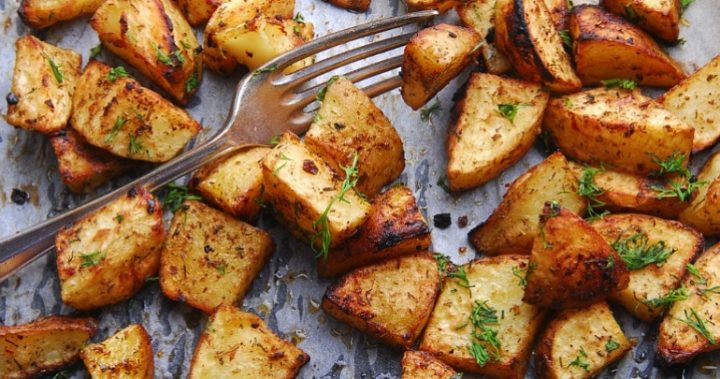Eating potatoes better for losing weight than calorie-counting

Potato lovers, rejoice! A new study has found eating spuds could actually help people lose more weight than counting calories and watching what you eat.
The research, conducted by Leeds University in the United Kingdom and published in the Journal of Nutrition, found low density energy foods such as potatoes, rice and pasta are more effective when it comes to reducing food cravings. When people consume low energy density foods, they can eat bigger portion sizes to fill them up because the foods contain higher levels of water, protein and fibre, but less calories.
In contrast, high energy density foods contain more calories per mouthful and aren’t as effective when it comes to curing hunger cravings.
While it’s great news for fans of potato, it was also found other fresh fruits, vegetables, lean meats, fish and eggs have the same effect because they contain less calories per mouthful. Processed foods are more likely to be jammed with calories and people will often need to consume larger amounts to feel full.
Speaking to British publication Leeds Live, Psychologist and lead author Nicola Buckland explained that someone could eat 250g of carrots to consume 100 calories, yet the same number of calories are consumed in 20g of chocolate. Because you’re eating more carrots, you’re less likely to feel full. Similarly, 250g of potatoes contains 185 calories, the same number in a standard jam donut, while 75g of penne pasta contains 126 calories, the same amount found in a 47g scoop of vanilla ice cream.
The study analysed two groups of women on separate diets. The first were placed on a low energy density diet for 14 weeks. They lost around 6kg. In contrast, women placed on a restricted diet of 1,400 calories a day lost just over 3kg on average in the same time period.
In a separate lab test, researchers discovered women who ate les energy-dense foods for breakfast and lunch consumed 1,057 less calories at dinner time – even when there were no restrictions on the foods they ate. During these trials, participants claimed to feel fuller after eating low energy density foods.
“Gram for gram, low energy dense foods contain fewer calories than high energy density foods, so people are able to eat a larger volume of food for the same (or lower) calorie intake, leading them to feel much fuller,” she said.
“This study has produced the first evidence that low energy density meals reduce hunger for food among people who are following a weight loss plan.”
It’s not the first study to link tasty foods to diet loss. Research published last month in the BMJ Open Journal found eating pasta wasn’t actually linked to weight gain. In fact, the study claimed teaming pasta with the right diet could help people shed the kilos.








 Proudly Australian owned and operated
Proudly Australian owned and operated